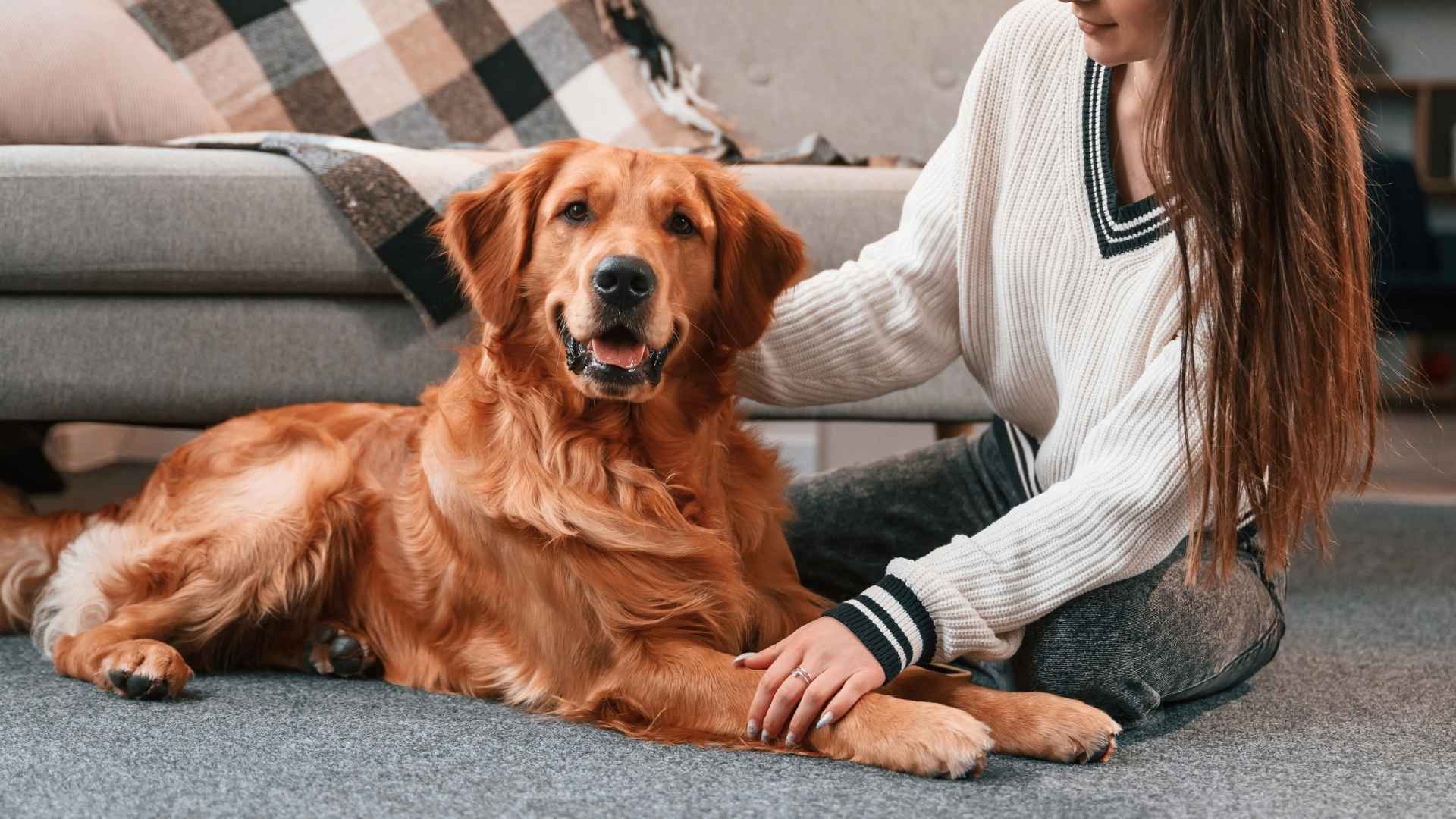Did you know that a majority of pet parents say loyalty and connection are what steer them when choosing a dog?
Sounds like we’ve collectively become obsessed with having a pup who never leaves our side—and frankly, who can blame us?
Picture coming home after a rough day, and instead of a goldfish staring blankly, you get greeted by a fluffy, four-wagging tail and soulful eyes. That kind of love is more than just cute—it’s absolutely magnetic.
In this guide, we’re shining the spotlight on those loyal breeds that’ll stick to you like gum on your shoe. We’re talking about the “permanently attached” companions who refuse to let you out of their sight.
So grab your leash (and maybe a treat or two) because we’re diving into popular breeds whose love levels are off the charts—and not for the faint of heart or those who enjoy personal space.
Popular Dog Breeds That Are Permanently Attached
1. Collie
Let’s talk about the Collie, the picture-perfect definition of loyalty wrapped in a fluffy coat. Known for their soulful eyes and elegance, these dogs are all about heart.
Collies thrive on companionship, and yes, they’ll follow you from the couch to the kitchen without missing a beat. That “permanently attached” trait? It’s their love language.
Owner Insights
Thrives with gentle, consistent training.
Sensitive souls—harsh words can shut them down.
Needs mental stimulation, not just exercise.
Early socialization is key—expose them to new people, pets, and places while they’re young. This makes them adaptable family members who stay confident in any setting.
WebMD claims that training is a dream because Collies are ridiculously smart. Positive reinforcement works best—they’ll happily perform for praise and treats.
Their loyalty isn’t just emotional—they were bred as herders, which means they excel in roles requiring sharp instincts and devotion. Think agility sports or therapy work.
Handle their clinginess with balance. A daily dose of exercise and mental stimulation prevents over-attachment.
And the quirkiest trait? Collies have an uncanny ability to “read the room.” They’ll sense your mood faster than your best friend and adjust to comfort you.
2. German Shepherd
The German Shepherd is a loyal working breed often described as a four-legged Swiss Army knife—protective, intelligent, and deeply bonded with its family.
PetPlan suggests that early socialization, ideally between 4–16 weeks, helps these pups grow into confident adults who can handle a wide variety of people, pets, and environments.
Training is a joy because of their intelligence; they pick up commands quickly, but they thrive best with consistency and positive reinforcement.
Owner Insights
Requires structured daily training.
Can develop separation anxiety if left alone too long.
Sheds heavily—regular grooming is a must.
One thing you’ll notice is their emotional attachment—they form incredibly strong bonds and can become anxious if left alone too long. That’s why owners should focus on building independence gradually while still providing plenty of interaction.
German Shepherds also excel in professional roles, from police and military work to guide dogs and search-and-rescue missions. Of course, their quirks include non-stop shedding and high bursts of energy, so regular grooming, and exercise are non-negotiable.
With the right training and care, this breed transforms into the ultimate permanently-attached companion—loyal, capable, and endlessly devoted.
3. Golden Retriever
Golden Retrievers are basically sunshine wrapped in golden fur—gentle, affectionate, and always ready to be your best friend. Proper socialization during their first few months ensures they blossom into confident, well-rounded adults.
Owner Insights
Loves carrying objects—chew toys save your socks.
Needs daily affection to avoid anxiety.
Great therapy dog potential with proper training.
Thanks to their eager-to-please attitude, they respond beautifully to positive reinforcement, making training a fun and rewarding process.
Emotionally, these dogs are classic “Velcro pups,” sticking to their owners through thick and thin. While that loyalty is heart-melting, it also means they can struggle with separation anxiety if left alone for long periods.
Beyond their charm at home, Golden Retrievers shine in therapy, assistance, and search-and-rescue work because of their calm temperament and emotional intelligence.
Quirky and playful, Goldens love carrying things in their mouths—whether it’s toys, sticks, or even your socks. Chew toys are a must to satisfy this habit.
In return for patience, training, and attention, Golden Retrievers reward you with unwavering devotion, making them one of the most popular permanently attached breeds.
4. Labrador Retriever
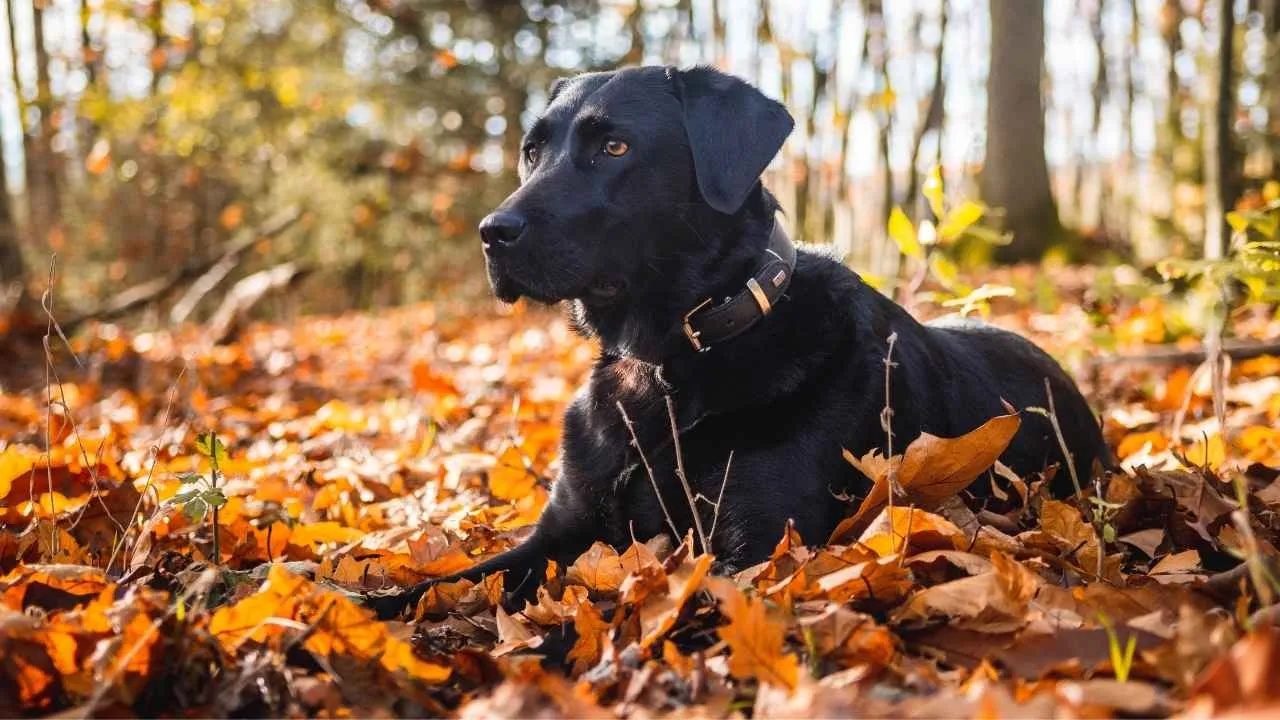
The Labrador Retriever is the life of the party—outgoing, affectionate, and happiest when glued to your side. Labradors crave attention and thrive when they’re included in every part of family life.
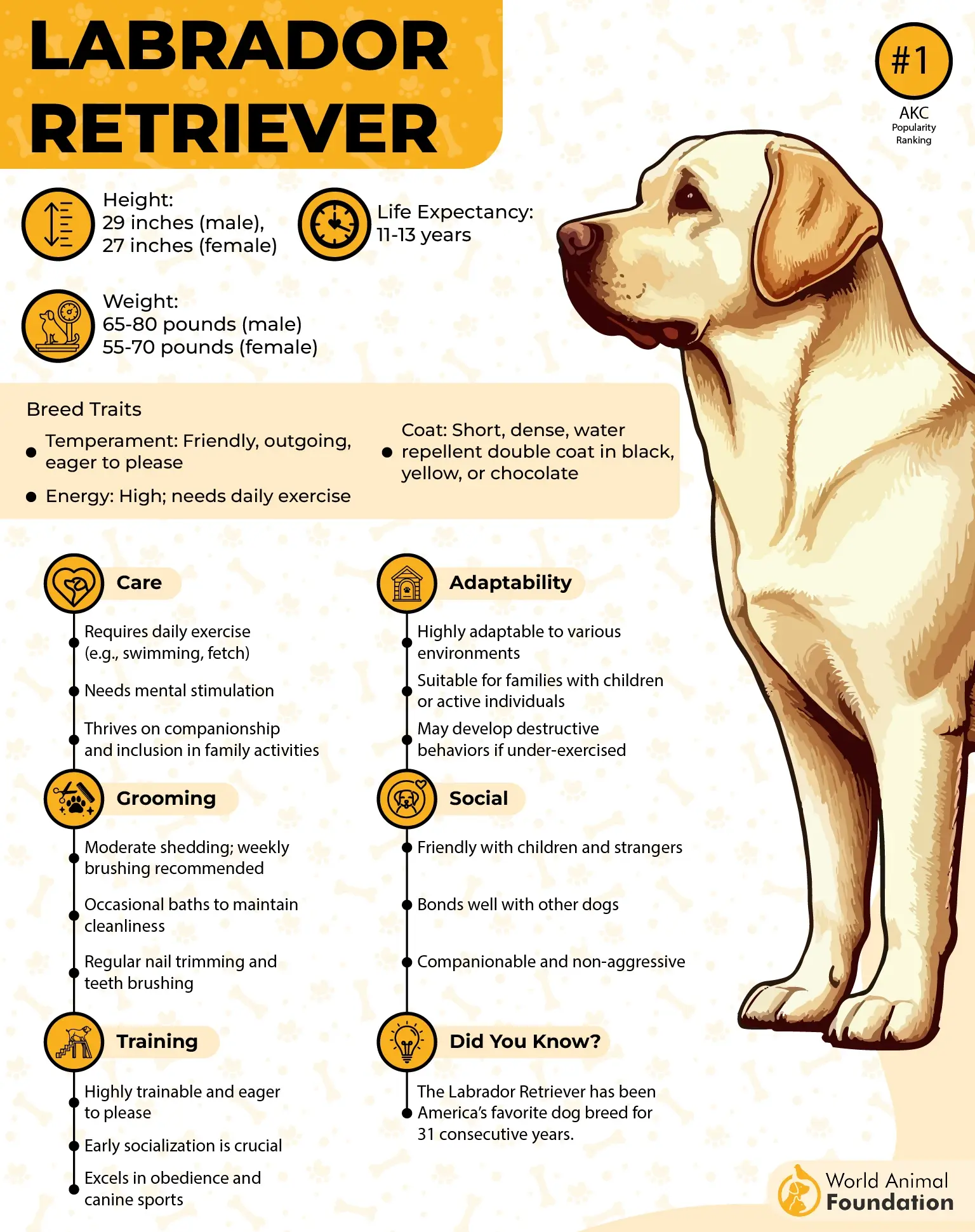
Owner Insights
Food-driven—watch the waistline!
Endless energy means long walks are non-negotiable.
Shadow-like attachment—expects to join every activity.
Training a Lab can be both entertaining and a little chaotic—they’re clever and food-motivated, but their short attention spans call for variety and fun in every session.
Emotionally, they’re true shadows, following their owners from room to room. If left out or ignored, they might resort to chewing or barking, which is their not-so-subtle way of demanding love.
What makes Labs extraordinary is their versatility: they excel as therapy dogs, service companions, hunters, and even water rescue heroes.
They also bring plenty of quirks—like endless energy and a love of mud puddles—that keep life interesting. With consistent training, proper socialization, and plenty of affection, Labradors become permanently attached best friends who radiate joy and loyalty.
5. Staffordshire Bull Terrier
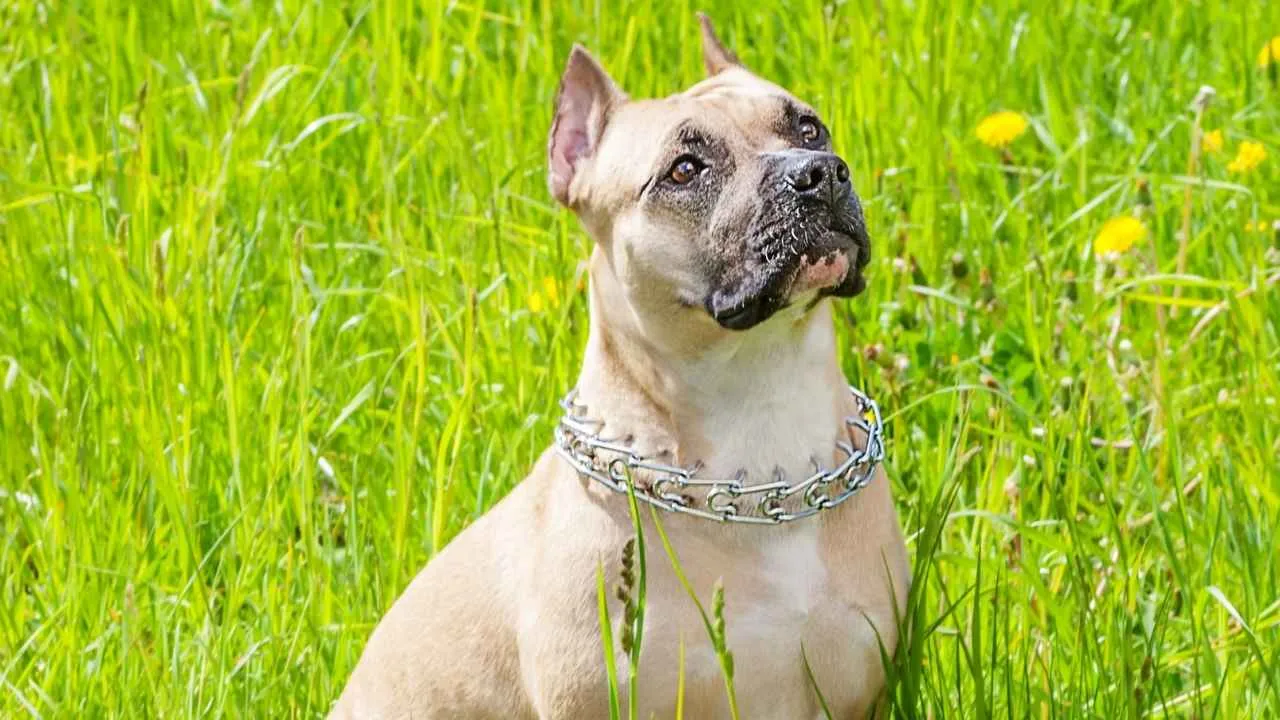
The Staffordshire Bull Terrier, affectionately known as the “Staffie,” is a compact, muscular breed with a heart ten times its size. They’re loyal to a fault and often called “nanny dogs” because of their gentle manner with kids—even though their build says “tough guy.”
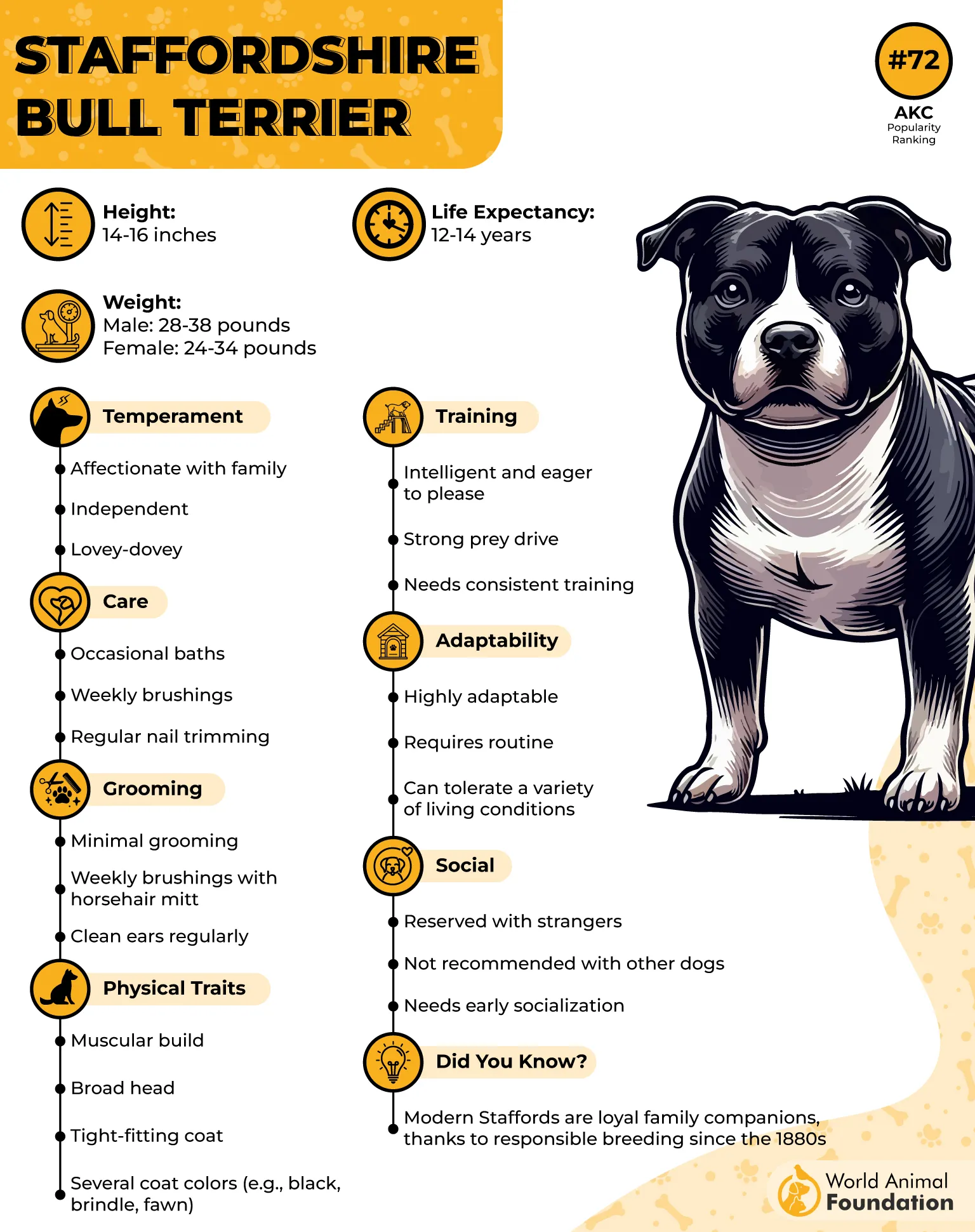
Owner Insights
Not all dog-park friendly—introduce carefully.
Needs daily exercise to avoid mischief.
Blanket hog despite the tough look.
Socialization from puppyhood is essential: expose them to various people, dogs, and environments between roughly 8–16 weeks. This helps prevent overprotectiveness and builds confidence.
PDSA advises that training works best via consistency and positive reinforcement—harsh corrections backfire with this sensitive yet strong breed. They thrive on earned trust, not fear.
Emotionally, Staffies are Velcro-dogs: they stick with you, demand attention, and form strong bonds, which means they hate being ignored or left alone too long.
Aside from being awesome family companions, Staffies shine in active roles like agility or obedience, bringing lots of energy and charm to the job.
Quirks? They’ve got boundless enthusiasm and love carrying things in their mouth—so chew toys and plenty of exercise save your shoes and sanity.
With dedicated training, socialization, and loads of affection, the Staffordshire Bull Terrier becomes a fiercely attached, courageous, and affectionate member of the family—perfect for anyone seeking a loyal, always-by-your-side companion.
6. Cavalier King Charles Spaniel
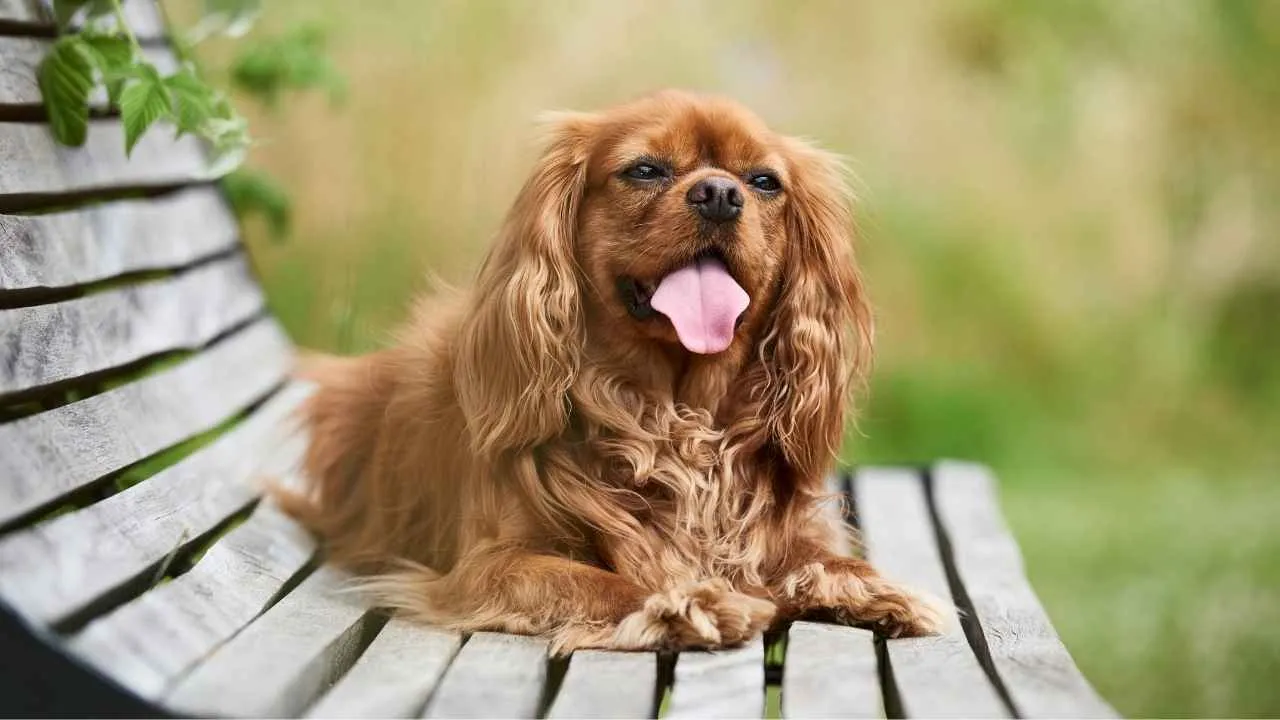
The Cavalier King Charles Spaniel is basically royalty in fur form—charming, affectionate, and designed to be your lap buddy from day one.
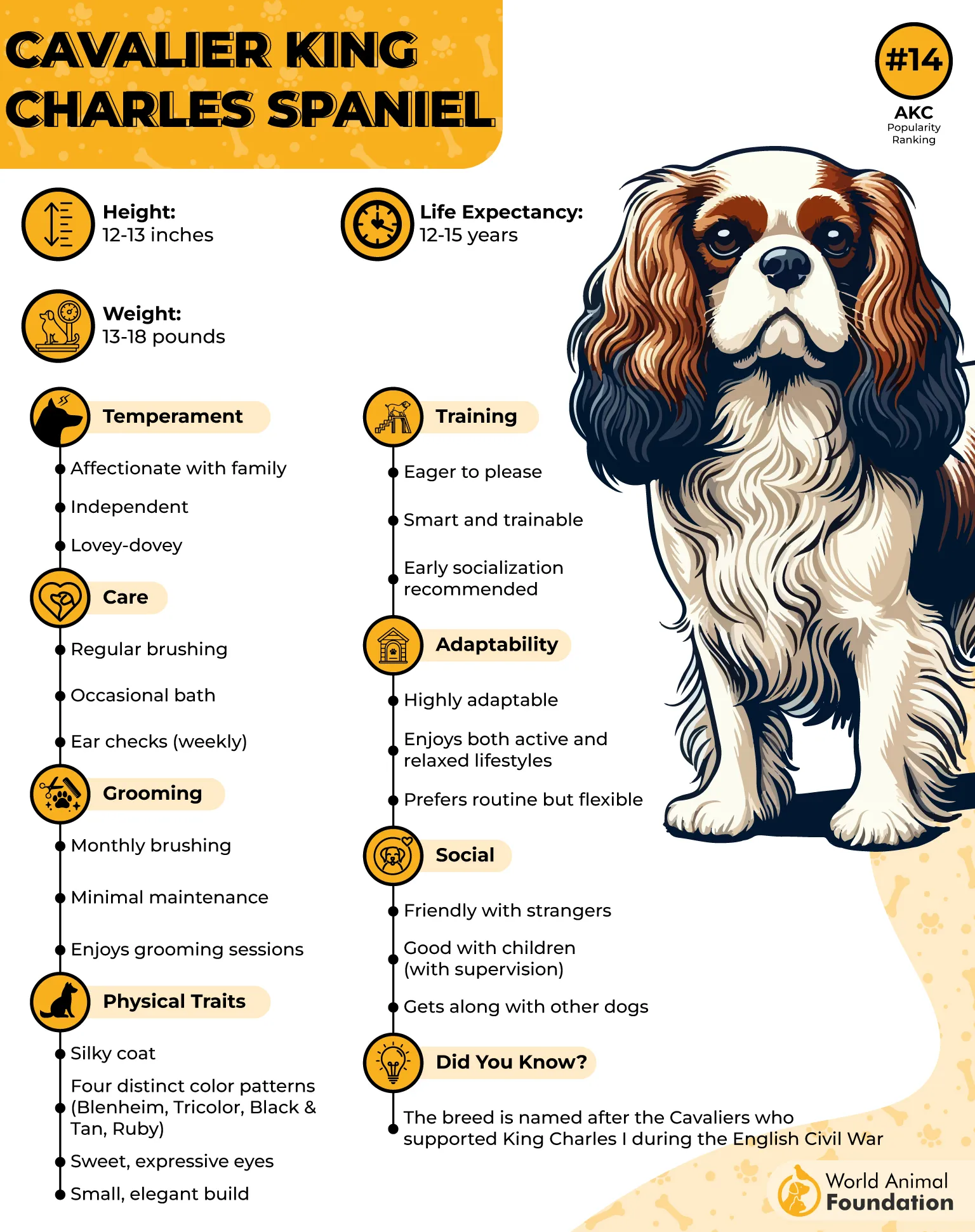
Owner Insights
Daily walks keep them trim.
Regular vet checks for heart health.
Masters of irresistible puppy eyes.
Training should be playful and reward-based—Cavaliers learn best when lessons feel like fun games, not drills.
Emotionally, they’re extremely attached—cuddlers who hate being left alone—and separation anxiety is a real concern if they’re isolated for too long.
Though mostly lap companions, they also make excellent therapy dogs, adapting to different environments with grace and compassion.
Quirky side? Cavaliers groom themselves in people’s laps and might bark politely at the door—but rarely cause chaos.
With the right socialization, gentle training, and plenty of love, this breed becomes the ultimate permanently attached little companion who’s both sweet and emotionally tuned in.
7. Doberman Pinscher
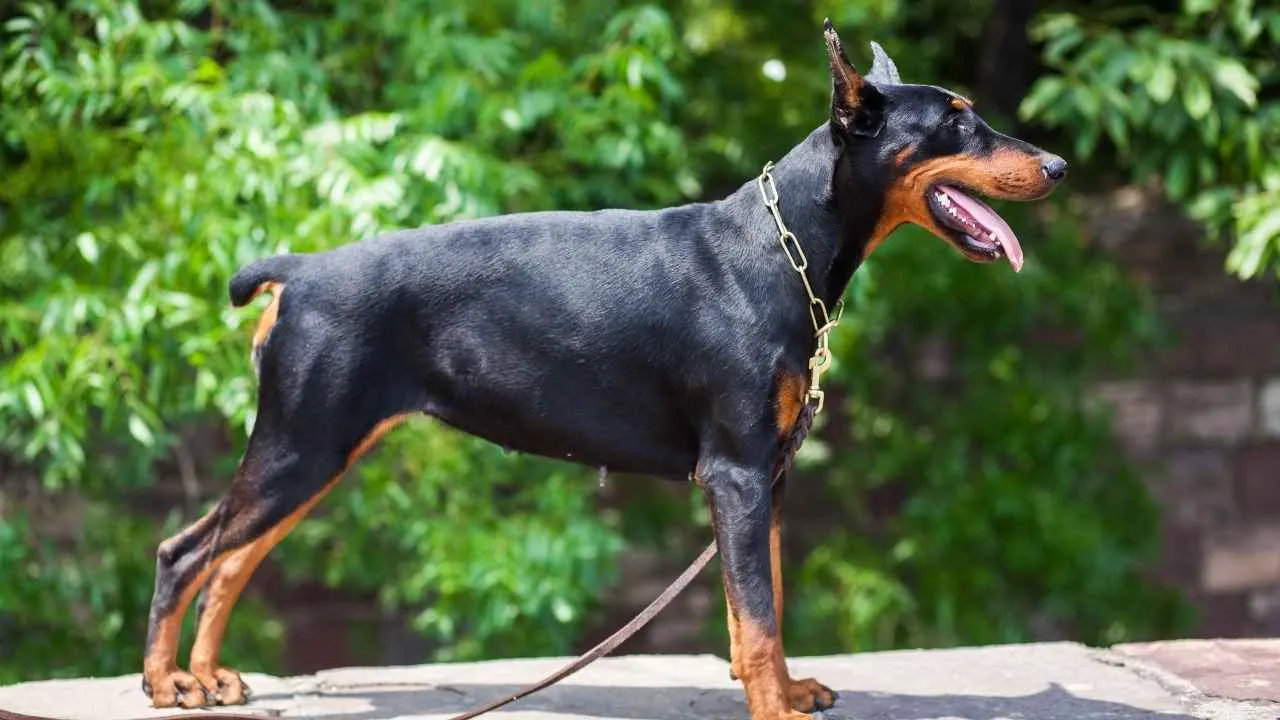
The Doberman Pinscher is a sleek, elegant guardian with a reputation for fierce loyalty and razor-sharp intelligence—beautiful, alert, and always on your side.
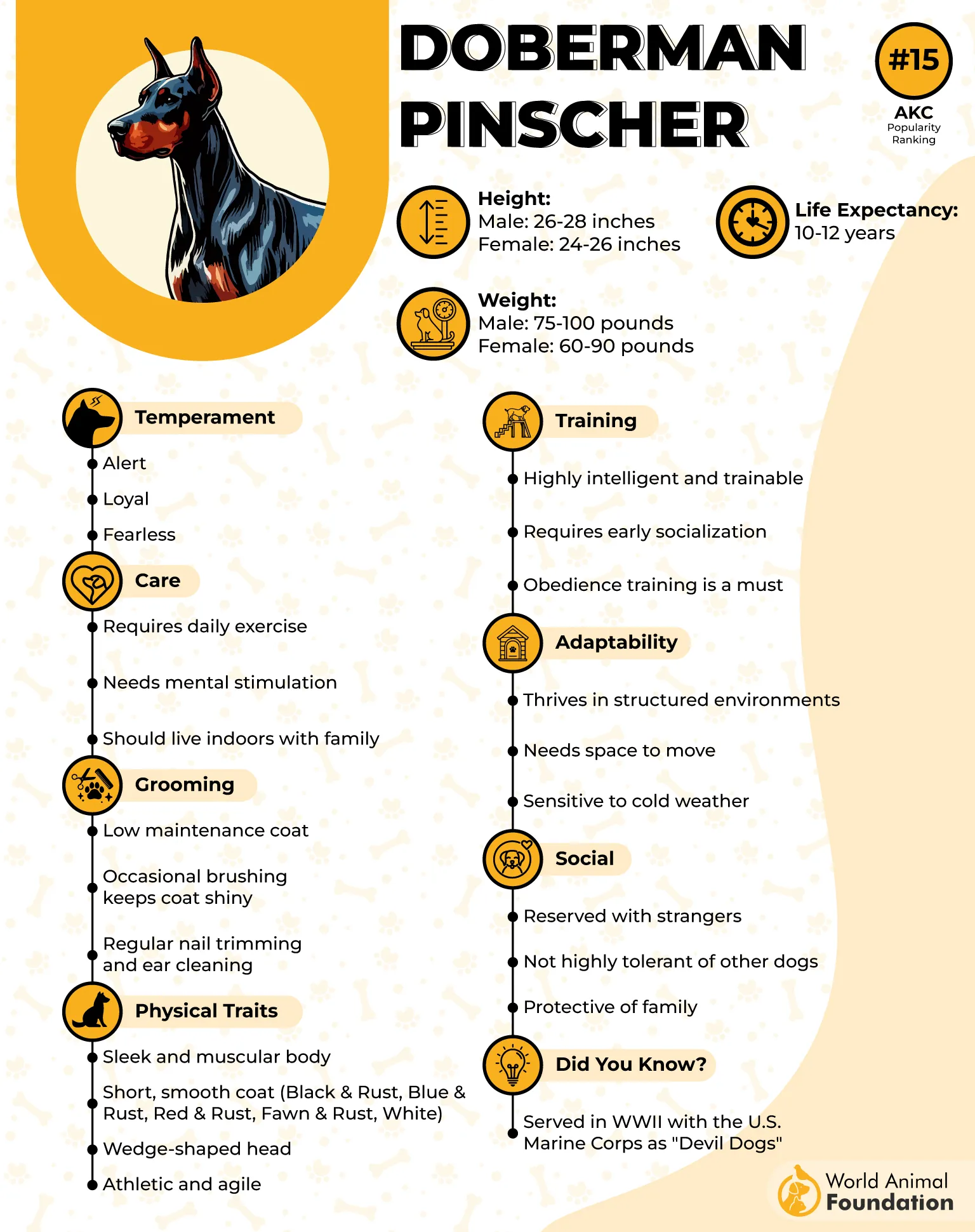
Owner Insights
Needs a “job” for mental balance.
Secure fencing is essential.
Sensitive to harsh corrections.
Training should be consistent, structured, and positive—this breed thrives on mental challenges and clear expectations.
Emotionally attached? Absolutely. Dobermans form deep bonds, but their protective nature means they need to learn when to alert and when to relax—this balance helps prevent anxious or overprotective behavior.
Beyond being devoted family guardians, they excel in protection roles, police work, and obedience—utility and emotion combined beautifully.
Quirks? They may zoom around the house or “lean in” for pets like a toddler demanding more cuddle time. Their energy and attention-seeking nature mean boredom leads to creative (sometimes destructive) entertainment.
If you invest in early socialization, thoughtful training, and emotional boundaries, a Doberman becomes the epitome of a permanently-attached pup—vigilant, loving, and endlessly loyal.
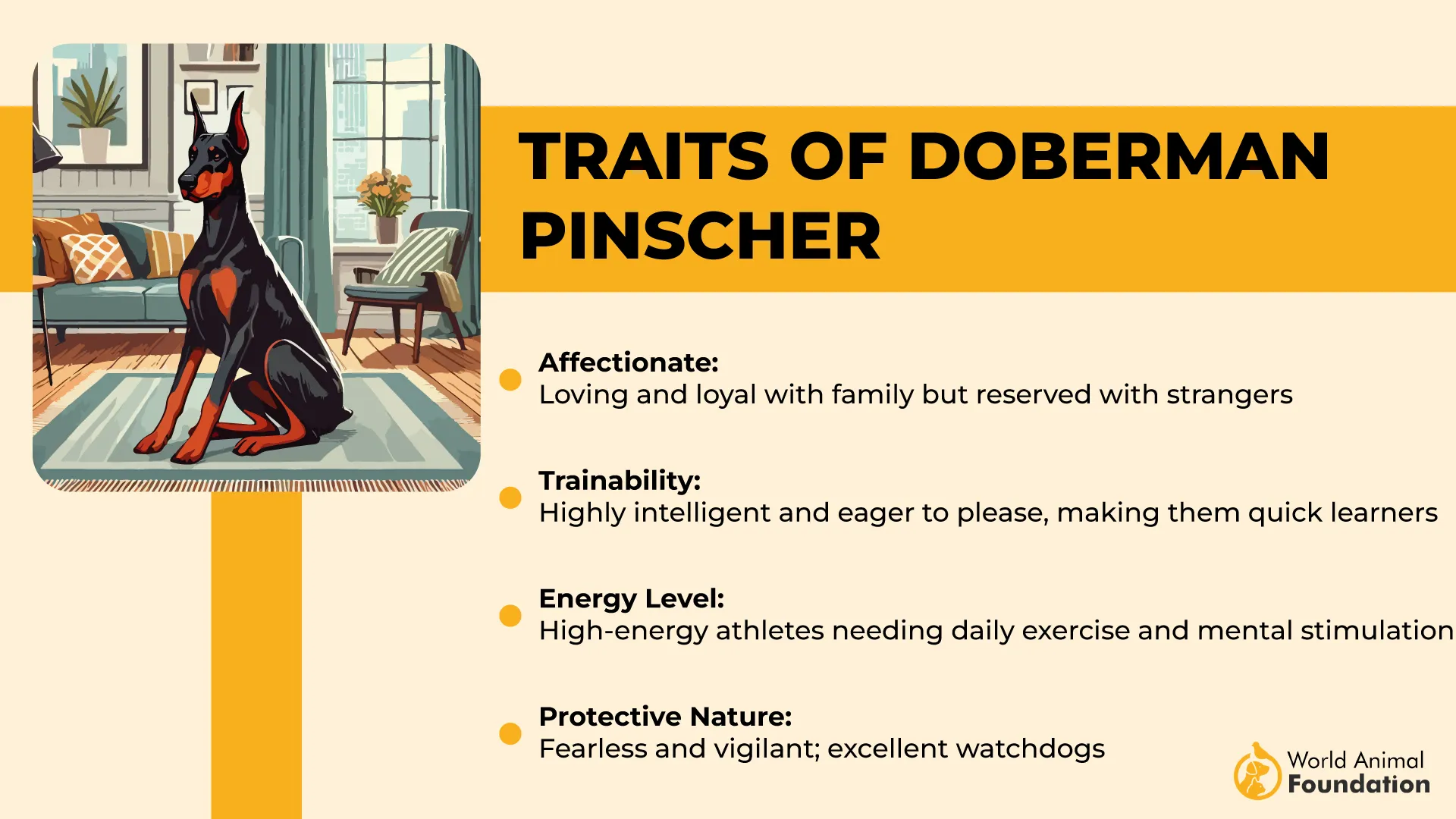
FAQs
What does “permanently attached” mean in dogs? “Permanently attached” describes dogs that form close bonds with their humans and rarely want to be apart. These pups often follow their person from room to room and thrive on constant companionship. It’s a sign of deep loyalty and affection.
Can these breeds adapt to busy owners? Yes, but it takes effort. Many of the most loyal dog breeds can adapt if given proper training, mental stimulation, and daily interaction. Without this balance, they may become bored or stressed.
Do clingy dog breeds suffer from separation anxiety?Often, yes. A loyal dog with a strong attachment may struggle when left alone too long. With patience, routine, and being properly socialized, anxiety can be reduced.
Conclusion
When it comes to the most loyal dog breeds, it’s clear that some pups are literally attached to their humans.
Whether we’re talking about the Border Collie, Australian Shepherd, or even the Akita, many herding breeds and working dogs were originally bred to work alongside people, forming close bonds that remain unmatched today.
With the right training and being properly socialized, these dogs become both loyal companions and excellent guard dogs.
Other dogs like the Great Dane, Bulldog, or even the spirited Shih Tzu may differ in size and energy, but their strong attachment to a person, instinct to protect, and ability to get along with children, cats, and even horses make them some of the world’s most fiercely loyal and extremely loyal breeds.
From gentle giants with a thick double coat suited for cold weather to the highly energetic pups who tend to herd sheep, the bond between dogs and humans is proof that loyalty is more than instinct—it’s love.


